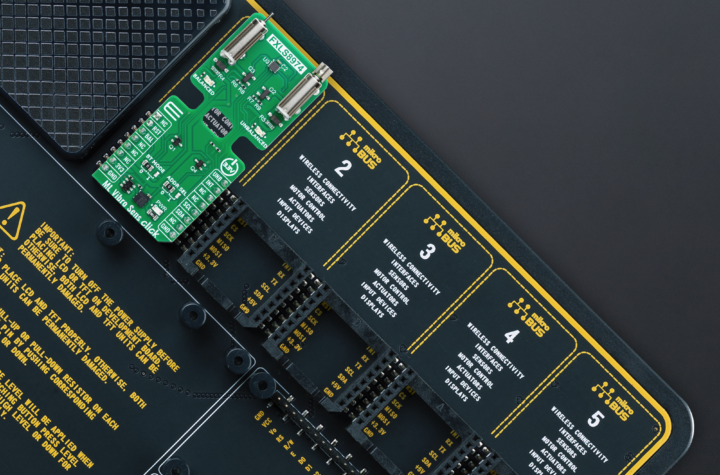
China’s domestic auto-supply industry, despite a recent history of impressive growth, faces both mounting cost pressures and new outside challenges that will threaten profitability and spark dramatic industry consolidation in the near future. That’s according to a new study released here today by AlixPartners, the global consulting firm.
The Chinese auto-parts industry, to date, has outperformed even Chinese automakers in both growth and profitability, enjoying a compound annual revenue growth rate (CAGR) of almost 31 percent from 2004 to 2007 and achieving an average net profit margin in 2007 of 7 percent, versus a net margin of 4.5 percent for Chinese automakers, according to the study. Moreover, the study notes that the already fast-growing light-vehicle market in China is on track to achieve a CAGR of 15 percent between now and 2011, on top of an average annual growth of 19 percent since 2003. In addition, the study finds, exports now account for 14 percent of Chinese suppliers’ total annual sales, representing a 35 percent CAGR since 2003.
However, AlixPartners notes, China’s suppliers face daunting new challenges, both external and internal. On the external front are a strengthened Chinese RMB against the U.S. dollar and other currencies, and the ongoing reduction in China’s value-added-tax (VAT) rebate for auto-parts exports, the latest move being last year’s rebate reductions in such high-export categories as tires and auto glass. The impact of the VAT change and the RMB appreciation could increase the cost of many Chinese auto-parts exports by more than 10 percent this year, says the study. This is on top of increasing costs for energy and raw materials, the study notes — cost increases that Chinese suppliers will not be able to pass to their customers as easily as in the past.
Meantime, Chinese suppliers, especially the pure domestics, are now facing a “moment of truth” vis-a-vis internal issues, says the study.
One is industry fragmentation. China’s auto-parts industry is so fragmented that its top 100 suppliers command only around 50 percent of the industry’s total market share, well below the norm in most other auto-producing countries. Another is a lessening access to technology. According to AlixPartners, the era of China’s local auto suppliers being able to tap into new technologies via international joint ventures and license agreements is virtually over, as so many one-time JVs are now majority-controlled foreign companies, and are effectively blocking technology transfer to their local competitors.
Last, but by no means least, is rising costs, including labor costs, and declining profitability. In a survey of senior executives at domestic Chinese suppliers that was a part of the AlixPartners study, 78 percent reported lower profitability in 2007 than three years prior, and 67 percent said they expect to see further profitability shrinkage over the next three years. Plus, the AlixPartners study found, local suppliers’ net profit margins have trailed those of foreign-controlled JVs by two full percentage points in recent years.
“The Chinese auto-parts industry has reached a day of reckoning,” said Stefano Aversa, co-president of AlixPartners and also one of the firm’s top auto experts, having spent a quarter century in the
industry. “On the one hand, it’s an extremely promising industry with high growth potential for years to come. But on the other, this industry and those with a stake in it have some hard choices to make, and they must be made rather quickly. Those choices include letting the unstoppable, ‘creative-destruction’ forces at work today endanger even existing investments, or turning these new challenges into opportunities, including through aggressive acquisitions or alliances
— and in the process, perhaps forge China’s national champions of tomorrow in this industry.”
And international acquisitions are indeed something many players in China are already clearly contemplating, according to the AlixPartners’ supplier-executive survey. Ninety percent of the executives interviewed said they are planning some sort of M&A actions in the near future, with more than half of them saying they are also considering international acquisitions. Gaining greater access to technology and R&D was the number-one reason given for potential M&A deals, followed by access to sales channels and customers, and access to management skills.
By the same token, the suppliers listed their own lack of understanding of foreign markets and their companies’ relative lack of management experience as their top two roadblocks to successfully executing such global transactions.
“The recent M&A deal from outside the auto industry between China’s Lenovo Group Ltd. and IBM is being seen by many as perhaps providing a model for this industry going forward,” said Ivo Naumann, a managing director at AlixPartners and head of the firm’s Shanghai office, which is celebrating its first anniversary this week. (See separate
release.) “By acquiring IBM’s personal computing division, Lenovo overnight transformed itself from a domestic Chinese company, facing many of the same issues China’s auto suppliers face today, into a high-profile international player. Plus, it’s worth noting the role private equity played in that deal. In general, private equity, including firms in North America and Europe, can often become the needed facilitator in M&A for Chinese companies, providing access to capital, overall experience in deals and post-merger integration assistance.
“For all its breathtaking growth and potential, the Chinese auto-supplier industry doesn’t yet have any true national champions,” continued Naumann, “no equivalents of Bosch, Michelin, etc. Out of the cauldron this industry is presently in, some are sure to emerge.
The question is: Who will the winners — and losers — be?”
AlixPartners LLP is a global consulting, turnaround and financial-advisory services firm, with offices in Chicago, Dallas, Detroit, Dusseldorf, London, Los Angeles, Milan, Munich, New York, Paris, San Francisco, Shanghai and Tokyo. The firm serves a wide array of clients, including corporations, private-equity and hedge funds, and financial institutions. AlixPartners’ professionals have worked in China for many years, culminating with the opening of an office in Shanghai in Feb. 2007. The firm is on the Web at www.alixpartners.com.















More Stories
Mosaic Click board from MIKROE delivers global coverage multi-band and multi-constellation tracking ability
Current transducer from Danisense selected for DC charging station testing device demonstrator at TU Graz
New Click board from MIKROE helps develop and train ML models for vibration analysis